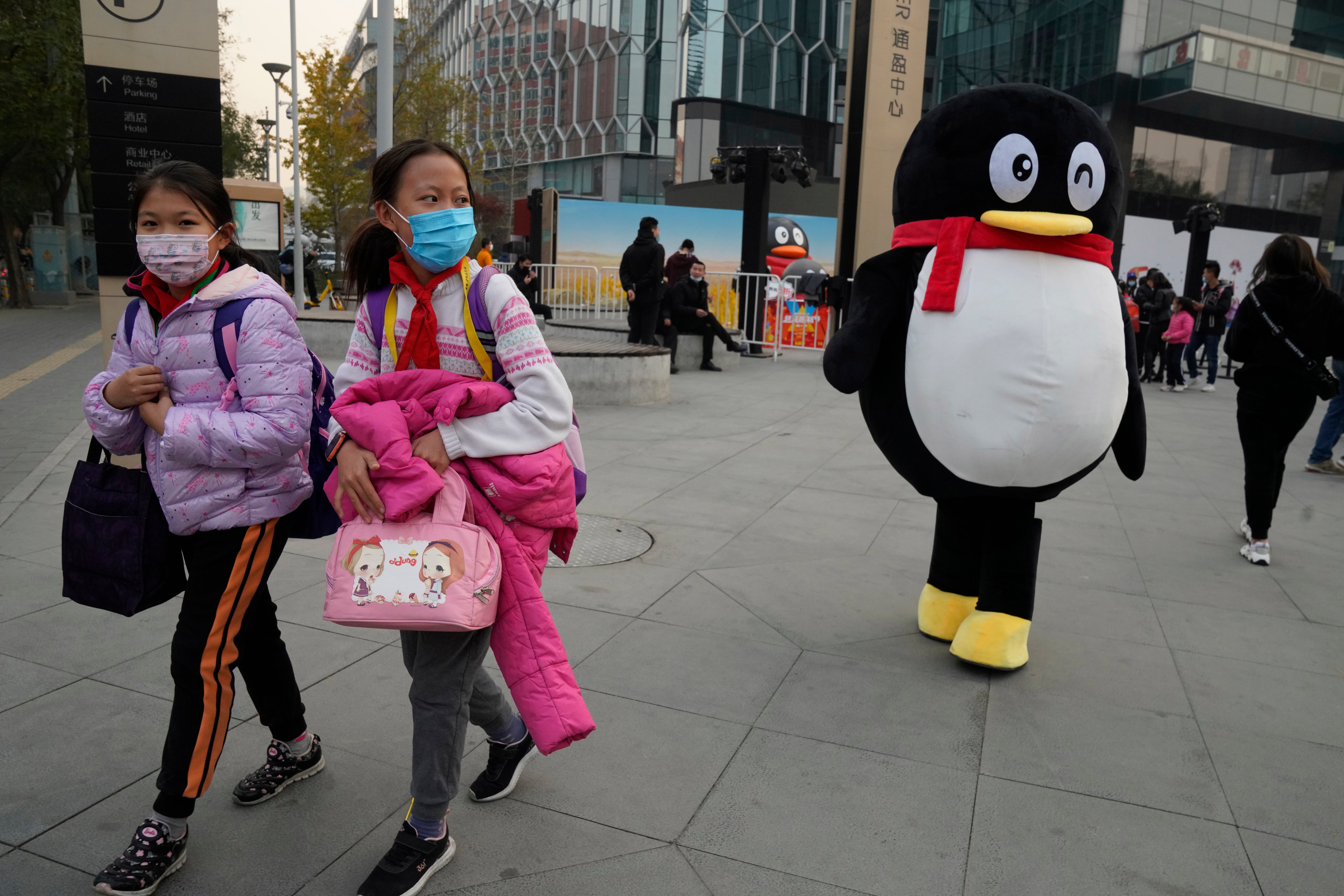China proposes to limit children's smartphone time to a maximum of 2 hours a day
China’s internet watchdog has laid out regulations to curb the amount of time children spend on their smartphones, in the latest blow to firms such as Tencent and ByteDance, which run social media platforms and online games

Your support helps us to tell the story
From reproductive rights to climate change to Big Tech, The Independent is on the ground when the story is developing. Whether it's investigating the financials of Elon Musk's pro-Trump PAC or producing our latest documentary, 'The A Word', which shines a light on the American women fighting for reproductive rights, we know how important it is to parse out the facts from the messaging.
At such a critical moment in US history, we need reporters on the ground. Your donation allows us to keep sending journalists to speak to both sides of the story.
The Independent is trusted by Americans across the entire political spectrum. And unlike many other quality news outlets, we choose not to lock Americans out of our reporting and analysis with paywalls. We believe quality journalism should be available to everyone, paid for by those who can afford it.
Your support makes all the difference.China’s internet watchdog has laid out regulations to curb the amount of time children spend on their smartphones, in the latest blow to firms such as Tencent and ByteDance, which run social media platforms and online games.
The Cyberspace Administration of China on Wednesday published the draft guidelines on its site, stating that minors would not be allowed to use most internet services on mobile devices from 10 p.m. to 6 a.m., and that children between the ages of 16 and 18 would only be able to use the internet for two hours a day.
Children between the ages of 8 and 15 would be allowed only an hour a day, while those under 8 would only be allowed 40 minutes.
Only certain services, such as apps or platforms that are deemed suitable to the physical and mental development of minors, will be exempted. The CAC did not specify which internet services would be allowed exemptions.
The restrictions are Beijing’s latest efforts to attempt to limit internet addiction, a problem it views as widespread among its youth. In 2019, Beijing limited children’s daily online game time to 90 minutes a day and tightened those restrictions in 2021, allowing children only an hour a day of online game play on Fridays, weekends and public holidays.
Short-video and online video platforms like Douyin, Bilibili and Kuaishou have offered youth modes that restrict the type of content shown to minors and the length of time they can use the service. Children are also pushed educational content, such as science experiments.
The latest restrictions would impact firms like Tencent, China’s largest online game company, and ByteDance, which runs popular short-video platform Douyin. Firms in China are often responsible for enforcing regulations.
“To effectively strengthen the online protection of minors, the CAC has in recent years pushed for the establishment of a youth mode on internet platforms, expanding its coverage, optimizing its functions and enriching it with age-appropriate content,” the CAC said.
“Since the mode was launched, there has been a positive impact in reducing youth internet addiction and the impact of undesirable information,” it added.
The CAC said draft guidelines were open to public feedback until Sep. 2. It did not say when the new rules would be into effect.